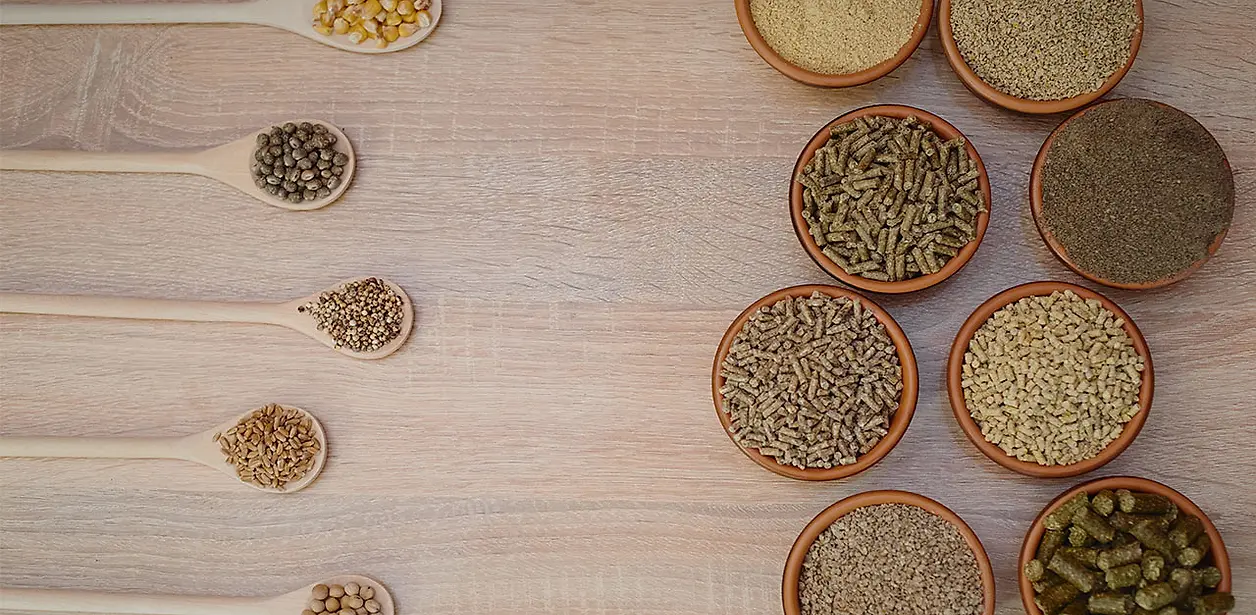ISO 118154 Ash Content Testing in Dairy-Based Rations
The ISO 11815:2020 standard, titled "Animal feeding stuffs – Determination of ash," specifies the method for determining the total ash content in feedstuffs. This parameter is crucial as it reflects the non-volatile mineral matter present in dairy-based rations. Accurate measurement ensures that nutritionists and quality managers can tailor diets to meet stringent regulatory requirements while optimizing animal health and performance.
In the context of dairy farms, feeding rations with precise ash content plays a vital role in maintaining balanced nutrition. Excessive levels of ash can indicate high concentrations of non-nutritional minerals like phosphorus or sulfur that may interfere with calcium absorption. Conversely, insufficient ash might suggest inadequate mineral supplementation, affecting animal health and productivity.
Our laboratory adheres to the stringent requirements outlined in ISO 11815:2020 for all samples submitted under this service. Using precise methods ensures consistent results across different batches of feedstuffs. The testing process involves incineration at high temperatures followed by accurate weighing and calculation of ash content.
Understanding the significance of ash content helps in formulating diets that meet both nutritional needs and regulatory compliance standards. For dairy farmers, this service allows for informed decision-making regarding ingredient selection and ration composition, ultimately leading to improved milk quality and yield.
The precision and reliability of our testing methods are further bolstered by state-of-the-art equipment and experienced personnel trained in adhering strictly to international standards. This ensures that clients receive accurate ash content measurements essential for maintaining high standards in dairy-based rations.
Our laboratory’s commitment to accuracy is reflected not only in the technical aspects but also in our customer service ethos. By leveraging advanced analytical techniques, we provide comprehensive reports that help stakeholders make informed decisions about their feed formulations. Our team of experts ensures that every test adheres meticulously to ISO 11815:2020 guidelines, delivering consistent and reliable results.
For those involved in dairy farming or quality assurance within the food industry, ensuring compliance with international standards is paramount. By partnering with our laboratory, you can rest assured that your feedstuffs meet stringent ash content requirements, thereby supporting optimal animal health and performance.
Scope and Methodology
| Step | Description |
|---|---|
| Sample Preparation | The feed sample is weighed accurately to ensure precise results. It should be representative of the batch being tested. |
| Incineration | The prepared sample undergoes incineration at 550°C ±25°C for a minimum of two hours until only ash remains. |
| Weighing | The cooled residue is weighed to determine the mass of ash content present in the feed sample. |
| Calculation | The ash content percentage is calculated using the formula: Ash Content (%) = (Mass of Ash / Mass of Sample) x 100. |
This meticulous process ensures that every test conducted adheres strictly to ISO 11815:2020, providing reliable and consistent results. Our laboratory's commitment to accuracy is further enhanced by the use of advanced analytical instruments and experienced personnel who are well-versed in these techniques.
Industry Applications
The precision of ash content testing is particularly important for dairy-based rations as it directly impacts animal health, milk quality, and overall productivity. Dairy farmers rely on accurate ash content measurements to balance mineral intake without causing imbalances that could affect calcium absorption.
In the context of regulatory compliance, adhering to ISO 11815:2020 ensures that feedstuffs meet stringent standards set by governing bodies like the European Commission and other international organizations. This not only protects animal health but also enhances consumer confidence in the products they consume.
Our laboratory supports various stakeholders within the dairy industry, including nutritionists, veterinarians, and quality assurance officers. By providing accurate ash content data, we enable informed decision-making that contributes to optimal feed formulation and animal welfare.
Quality and Reliability Assurance
The reliability of our laboratory's testing services is underpinned by rigorous quality control measures. Our ISO 17025 accreditation ensures adherence to internationally recognized standards, guaranteeing the accuracy and precision of every test performed.
We employ cutting-edge analytical equipment that supports precise measurements down to parts per thousand, ensuring that even small variations in ash content are captured accurately. Our team of experts is trained not only in the technical aspects but also in interpreting results within broader industry contexts.
Client satisfaction is at the forefront of our operations. We strive to maintain high standards by regularly updating our methodologies and equipment to align with evolving best practices and international regulations. By doing so, we ensure that clients receive reliable and consistent results every time.





